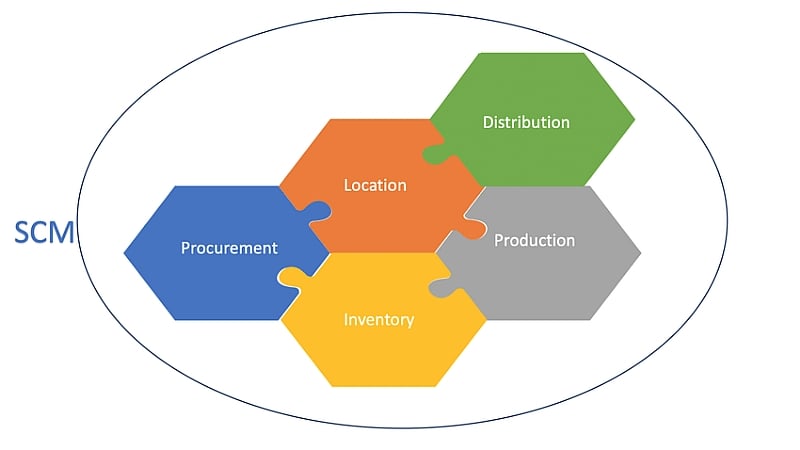The Ubiquity and Importance of Supply Chain Management
Supply chains are the invisible threads connecting every facet of commerce and daily life, from the smallest shopkeeper sourcing goods to the largest multinational corporation coordinating global operations. They are the intricate networks orchestrating the flow of goods, data, and finances, ensuring products and services reach their final destination. While often perceived as fragmented functions like procurement and logistics, the true power of supply chains lies in their integration, forming a cohesive system that fuels economic activity from local businesses to international trade. Understanding the interconnectedness of these networks is crucial for every stakeholder, from entrepreneurs and policymakers to consumers, as supply chain efficiency directly impacts prosperity at all levels.
Evolution of Supply Chain Management: From Linear Silos to Integrated Networks
Supply chain management (SCM), in its simplest form, involves managing the journey of a product or service from raw material sourcing to final delivery. Historically, SCM functioned as a linear sequence of separate activities, often managed in silos within organizations. This traditional approach focused on internal processes and overlooked the broader network of partners involved. However, the advent of the internet, coupled with rapid technological advancements and a surge in global trade, has revolutionized the landscape. Today’s supply chains are complex, interconnected networks operating 24/7, driven by consumer demand and expectations of instant fulfillment. This transformation necessitates a shift from linear, siloed management to integrated supply chain management (ISCM), emphasizing collaboration, data sharing, and real-time responsiveness to thrive in the dynamic global market.
The Rise of Integrated Supply Chain Management (ISCM): A Paradigm Shift
The global business environment is increasingly characterized by volatility, uncertainty, complexity, and ambiguity (VUCA). This necessitates a new approach to supply chain management, moving beyond traditional linear models to embrace a more holistic and interconnected approach – Integrated Supply Chain Management (ISCM). ISCM emphasizes collaboration, data sharing, and the use of robust technology infrastructure to streamline operations and enhance transparency across the entire supply chain. This integrated approach allows for better traceability, improved responsiveness to consumer demand, and increased competitiveness in the global marketplace. It enables businesses to adapt quickly to changing conditions, optimize resource allocation, and mitigate risks more effectively.
The Chartered Institute of Supply Chain Management’s (CISCM) Perspective on ISCM
CISCM defines ISCM as a centralized, collaborative system focused on achieving stakeholder utility, value for money, and driving economic prosperity. It promotes a value stream working relationship among all partners, utilizing shared resources for optimal performance and equitable risk/reward sharing. This approach moves beyond simply managing the flow of goods, data, and finances, and emphasizes the strategic importance of leadership and policy in creating a robust and resilient supply chain. By fostering a culture of collaboration and shared responsibility, ISCM aims to create a system that benefits all stakeholders and contributes to overall economic development.
Core Principles of ISCM: The Concepts of Remote Cause and Absolute Value
CISCM emphasizes two core principles in its approach to ISCM: the concept of remote cause and the concept of absolute value. The “remote cause” principle encourages a thorough understanding of the root causes of any issue or opportunity within the supply chain, extending beyond immediate symptoms to identify the underlying drivers. This holistic perspective helps in developing more effective and sustainable solutions by addressing the source of the problem, rather than just its manifestations. The “absolute value” principle focuses on maximizing the overall value generated throughout the supply chain lifecycle. This involves considering not just immediate gains, but also the long-term impact on all stakeholders, ensuring sustainable and progressive returns.
The Importance of Leadership and Accountability in Supply Chain Resilience
Effective leadership plays a crucial role in building resilient and responsive supply chains. From small cooperatives to multinational corporations, leadership sets the tone for transparency, accountability, and reliability throughout the network. The ability of individual actors within the chain to fulfill their commitments, from proper storage of goods to timely deliveries, directly impacts the stability and success of the entire system. Strong leadership fosters a culture of trust and collaboration, enabling the supply chain to withstand disruptions and adapt to change effectively. This highlights the importance of investing in leadership development and promoting best practices in supply chain management at all levels.














